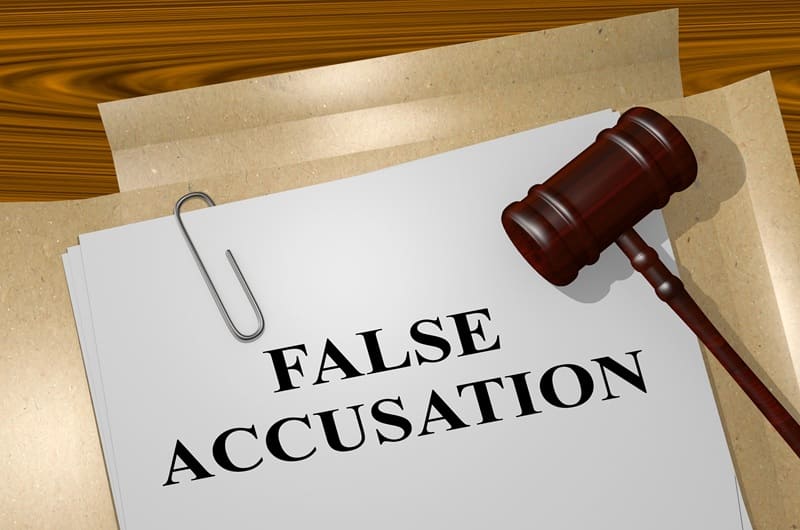Assault In Arlington VA A Top Defenses Options For Your Case
Assault In Arlington VA A Top Defenses Options For Your Case
Facing assault in Arlington VA, is a serious matter with high stakes. A conviction can result in substantial fines and jail time, affecting employment, personal relationships, and social standing. Understanding the gravity of the situation is critical. Having an Arlington criminal lawyer can create a strategic defense vital for minimizing penalties and protecting one’s future.
This guide clarifies various legal defenses available to those accused of assault. It provides details for each defense, empowering individuals with the knowledge to navigate their legal journey. Knowing the options can lead to a favorable case resolution, whether through lack of intent or challenging witness credibility.
Understanding Assault Charges In Virginia
Assault charges in Virginia encompass the intentional act of causing another person to fear imminent bodily harm. It can occur without any physical contact. This definition is critical as it distinguishes from battery, involving physical harm. Working with an assault and battery lawyer sheds light on distinguishing the differences of this crime’s different types.
Virginia law categorizes assault charges into several types. The most common include simple assault, aggravated assault, and assault on law enforcement officers. Each type carries different implications and penalties, making it vital for defendants to understand their specific charges.
Simple Assault
Simple assault is characterized by minor injuries or threats of harm without the use of a weapon. This charge often arises in bar fights, school altercations, or heated arguments. In Virginia, simple assault is classified as a Class 1 misdemeanor, which is the most serious category of misdemeanor.
Penalties for a conviction can include up to 12 months in jail and fines reaching $2,500. Additionally, a simple assault charge can result in a criminal record, which may affect future employment opportunities and personal relationships.
Aggravated Assault
Aggravated assault is considered a more serious offense and typically involves the use of a weapon or results in significant injury to the victim. This charge is classified as a felony, and the potential penalties are significantly more severe than simple assault. A conviction for aggravated assault can lead to substantial prison sentences.
The sentence length can vary based on factors such as the severity of the injuries inflicted and the perceived intent of the assailant. Defendants facing aggravated assault charges need to understand the gravity of the situation and the need for a robust legal defense.
Assault On Law Enforcement
Assaulting a law enforcement officer is treated with particular seriousness under Virginia law. Stricter penalties apply to individuals who are charged with this offense, reflecting the importance of protecting those who serve and protect the community. A conviction for assaulting a law enforcement officer can result in severe consequences.
It includes mandatory minimum sentences that do not apply to other types of assault. This heightened legal scrutiny underscores the justice system’s commitment to ensuring law enforcement personnel’s safety.
Understanding the type of assault charge is crucial for developing a strong defense strategy. Each type has different legal implications and potential penalties. By knowing these differences, defendants can make informed decisions, seek appropriate legal help, and navigate the legal system more effectively.
With this knowledge, individuals facing assault charges can better advocate for their rights and work toward the best possible outcome.
Self-Defense As A Legal Strategy
Self-defense is a crucial legal principle for individuals facing assault charges in Virginia, allowing them to protect themselves from genuine threats of harm. It’s essential to grasp the definition of self-defense and the conditions that apply when navigating the legal system. In Virginia, self-defense permits individuals to use reasonable and proportional force to prevent imminent bodily harm.
For example, if someone feels threatened during an aggressive encounter, they may defend themselves, but their response must be appropriate. Using deadly force in a scenario where non-lethal options could work may not be justified, raising important questions about what constitutes reasonable fear and an appropriate response.
When claiming self-defense, the burden of proof falls on the defendant to show their actions were reasonable. It often involves presenting evidence like eyewitness accounts, physical evidence, and expert testimony. The context of the incident is critical; if the prosecution can demonstrate that the defendant provoked the confrontation, it could weaken the self-defense claim.
Prosecutors may attempt to discredit self-defense claims by arguing that the defendant overreacted or used excessive force. Conflicting witness testimonies can also challenge the defendant’s narrative. Therefore, compiling a compelling account and substantial evidence is vital in defending against assault charges.
Getting guidance from Arlington criminal assault lawyers provides an understanding of self-defense’s legal aspects. They can prepare effectively and significantly influence the outcome of a case.
Defense Based On Lack Of Intent
In Virginia, a lack of intent can be a powerful defense strategy in assault cases. This strategy focuses on the legal concept of intent, which is critical for the prosecution. The prosecution must prove that the defendant acted with the intent to cause harm, either intentionally or recklessly.
If a defendant can demonstrate their actions were unintentional, it strengthens their defense. For instance, if they accidentally bump into another person at a crowded event, causing a fall, they can argue there was no intent to harm. To establish a lack of intent, defendants must show that their actions were free from malice or premeditation.
For example, if a defendant’s actions were a spontaneous reaction to an unforeseen situation rather than a deliberate act, this can bolster their argument. Accidental harm claims, such as in self-defense situations, can further reduce the likelihood of severe penalties.
Various scenarios illustrate how unintentional harm can lead to unjust assault charges. For instance, a sports injury or a minor altercation that escalates may result in charges based on a misunderstanding of the defendant’s actions. Providing evidence supporting the claim of accidental harm can effectively demonstrate a lack of intent.
Defense Based On Consent
Consent can serve as a viable defense strategy in certain assault cases, particularly those involving mutual physical interactions. Understanding when consent is applicable is essential for individuals facing charges related to consensual activities.
In situations where both parties engage in mutually agreed-upon physical activity, such as contact sports or agreed fights, consent can negate the basis for an assault charge. For instance, participants in a boxing match willingly engage in physical contact and, therefore, cannot claim assault against one another afterward.
This principle recognizes that not all physical confrontations are malicious. When consent is clear, it can serve as a strong defense against assault charges. However, the nuances surrounding consent require careful consideration to ensure its applicability in any given case.
Despite its potential as a defense, consent comes with limitations. If consent is deemed coerced or inadequately documented, it may not withstand scrutiny in court. Strong evidence is essential to support claims of consent. The prosecution may challenge its validity, arguing that one party did not genuinely agree to the interaction.
This creates challenges for the defense, as they must present compelling evidence to establish that consent was present and freely given. Consequently, using consent as a defense strategy necessitates careful preparation and strong supporting evidence.
Defense Using A Credible Alibi
An alibi can be a strong defense in assault cases, asserting that the defendant was not present at the crime scene. Establishing a solid alibi is crucial for anyone facing such charges. To do so, the defendant must provide credible and verifiable evidence showing they were in a different location during the alleged assault.
This often involves investigating their whereabouts at that time. For example, if a defendant can produce receipts or time-stamped video evidence indicating they were elsewhere, it can significantly strengthen their defense and create reasonable doubt.
Supporting an alibi requires various types of evidence. These include witness statements, GPS data, or surveillance footage that confirms the defendant’s location. A credible alibi relies on multiple corroborating evidence painting a clear picture of the defendant’s activities. Witnesses testifying to the defendant’s whereabouts are vital, and their credibility is essential for a successful defense.
However, while an alibi can be compelling, it faces challenges. Prosecutors may undermine the alibi by presenting contradictory evidence or witness testimony. If they can show that the defendant was seen near the scene shortly before or after the alleged assault, it could weaken the alibi. Therefore, preparing a strong strategy to support the alibi while anticipating potential challenges is crucial for success.
Mental Incapacity As A Defense
In Virginia, mental incapacity can serve as a significant defense in assault cases. The law recognizes that individuals who lack the mental capacity to understand the nature of their actions may not be held criminally responsible. This defense shows the defendant couldn’t understand their actions due to a mental disorder or severe impairment during the incident. This criterion is essential, as it can lead to acquittal or reduced charges.
Medical evidence is critical in strengthening a mental incapacity defense. It can include psychiatric evaluations, treatment records, and testimony from mental health professionals. This documentation can show the defendant’s mental state and support the claim of their inability to form intent during the incident.
By effectively presenting this evidence, defense attorneys can create reasonable doubt about the defendant’s guilt. It may lead to a more favorable outcome in their case.
Defense By Questioning Witness Credibility
Witness credibility is a pivotal factor in the outcome of assault cases. Inconsistencies or biases in witness statements can significantly weaken the prosecution’s case. When witnesses offer conflicting accounts of events or show bias due to personal relationships or interests, it can create doubt in the jury’s mind.
This uncertainty can undermine the validity of the prosecution’s narrative. It opens the door for the defense to argue that the evidence is not reliable enough to support a conviction. A defense attorney utilizes various techniques to challenge witness testimony effectively. They may highlight statement discrepancies, question the witness’s ability to accurately recall events, or introduce evidence suggesting ulterior motives.
By undermining the reliability of witness accounts, the defense can create reasonable doubt, which is essential for a successful defense strategy. This critical examination of witness credibility can significantly impact the overall strength of the prosecution’s case.
The Irving Law Firm Can Defend You
The Irving Law Firm takes a strategic and client-focused approach to defending assault cases. We understand that your situation is unique and requires personalized attention. Our priority is to meet your needs, ensuring they feel supported and informed throughout the legal process.
Our defense preparation involves several key phases. We begin by thoroughly evaluating the case and reviewing all relevant facts and charges to understand the circumstances. Next, we conduct a comprehensive investigation, gathering evidence and examining the prosecution’s case. We also consult with certain professionals as needed to build a strong defense.
Finally, we create a tailored defense strategy that considers the specifics of your case and any potential mitigating factors. At The Irving Law Firm, we are dedicated to guiding you through the complexities of assault cases. Our commitment to achieving favorable outcomes ensures you have a strong advocate during this challenging time.






